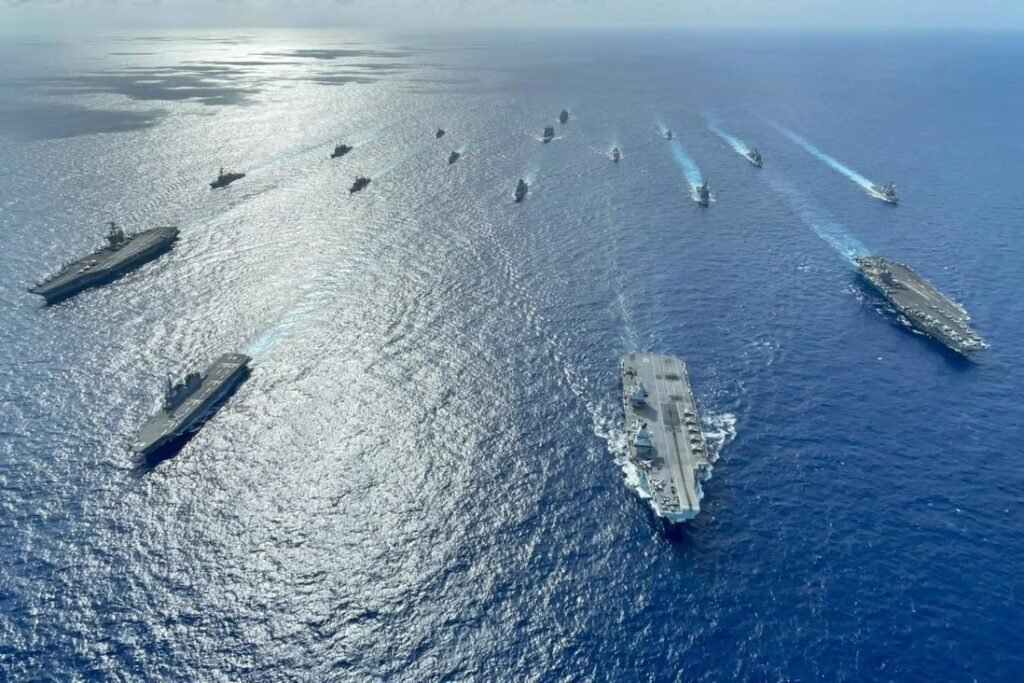The recent report by the RAND Corporation titled “Inflection Point: How to Reverse the Erosion of US and Allied Military Power and Influence” sheds light on a critical situation. It is becoming increasingly evident that the United States defence strategy and posture are facing significant challenges. The tasks expected from the nation’s military and other national elements far exceed the available means to achieve them.
The report also highlights the decline of US military superiority, especially concerning China and other less powerful adversaries. The capabilities required to counter Chinese aggression seem beyond the reach of the current and planned forces by the US Department of Defense.
Amidst this context, the Exercise Talisman Sabre held in Australia from 22 July to 4 August gains utmost significance. Australia, being one of Washington DC’s most loyal Indo-Pacific allies, provided the perfect opportunity to convey a strong message to Beijing. This massive joint and coalition exercise involved an unprecedented participation of 13 nations, including some engaging for the first time.
Brigadier General Kevin Jarrard, Assistant Division Commander, 1st Marine Division of the US Marine Corps (USMC), emphasized the importance of partnerships in facing the challenges in the Indo-Pacific. He underscored that solving the crises, contingencies, or conflicts in the region necessitates collaboration among partners and allies. Operating alongside longstanding friends in the Pacific and forging new friendships has become imperative for addressing these demanding issues collectively.
To effectively deter China and the People’s Liberation Army (PLA), combining capabilities is essential. Beyond mere interoperability, Rear Admiral Chris Stone, commander of the US Navy’s Task Force 76/3, spoke of striving for interchangeability. This entails that any partner or ally should be able to perform missions for each other, facilitated by shared tactics, techniques, procedures, doctrine, understanding, training, and proficiency.
In light of the Indo-Pacific’s unique challenges, Brig Gen Jarrard highlighted the tyranny of distance in this maritime theatre. Operating in a contested logistics environment adds further complexity. The US military’s experience in the desert conflicts lacked the maritime context, making exercises in Australia a realistic and demanding test.
Counteracting China’s capabilities requires innovative approaches. The US Marine Corps has established Marine Littoral Regiments (MLR) in Hawaii, designed to perform sea denial operations with air defence and anti-ship missiles. Such a transformation in the way the USMC operates enables projecting power from land to maritime regions.
Adapting to the changing strategic landscape, the USN formed Expeditionary Strike Group Seven, consisting of amphibious ships and Marine units. This combined team operates day in and day out, fostering proficiency and effectiveness in power projection from maritime to land.
Forward deployment emerges as a critical strategy in countering regional threats, particularly in response to China’s actions that may threaten stability. Dispersing forces, such as through Marine Littoral Regiments, is vital to avoid presenting concentrated targets vulnerable to long-distance missile attacks.
The Indo-Pacific’s expansiveness and interconnectedness underline the need for like-minded nations to work together. Operating in partnership is vital for maintaining a free and open Indo-Pacific and ensuring compliance with rules-based order. Exercises like Talisman Sabre serve as essential practices for maintaining the security of international waterways and fostering deterrence through collective skill-building.
Ultimately, the focus remains on readiness, deterrence, and cooperation. No one wishes for war, and the shared efforts of allies and partners aim to demonstrate the strength and resolve to defend against potential threats while maintaining peace and stability in the region. The dedication and commitment of like-minded nations underscore their determination to preserve a secure and rules-based Indo-Pacific.


